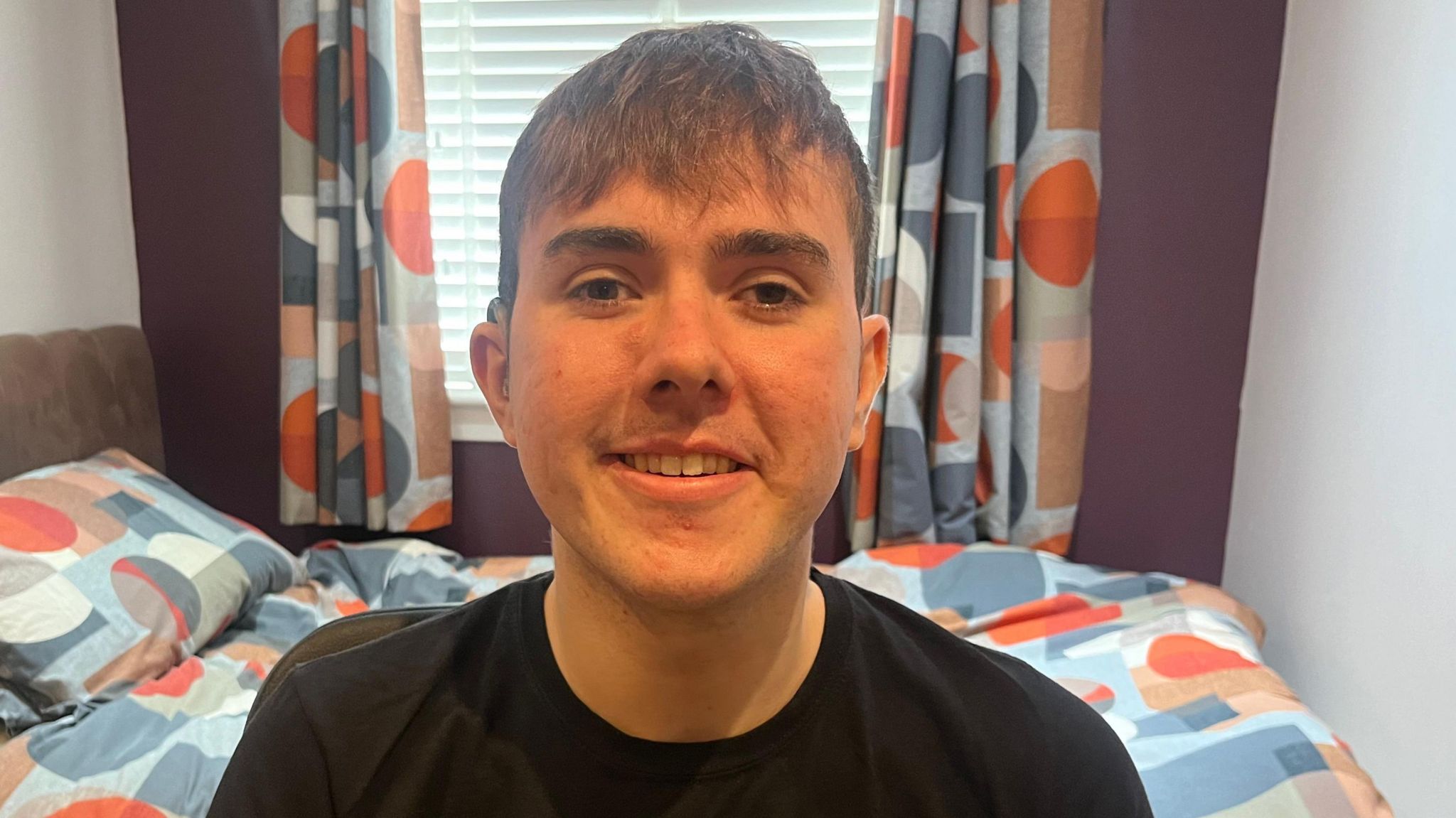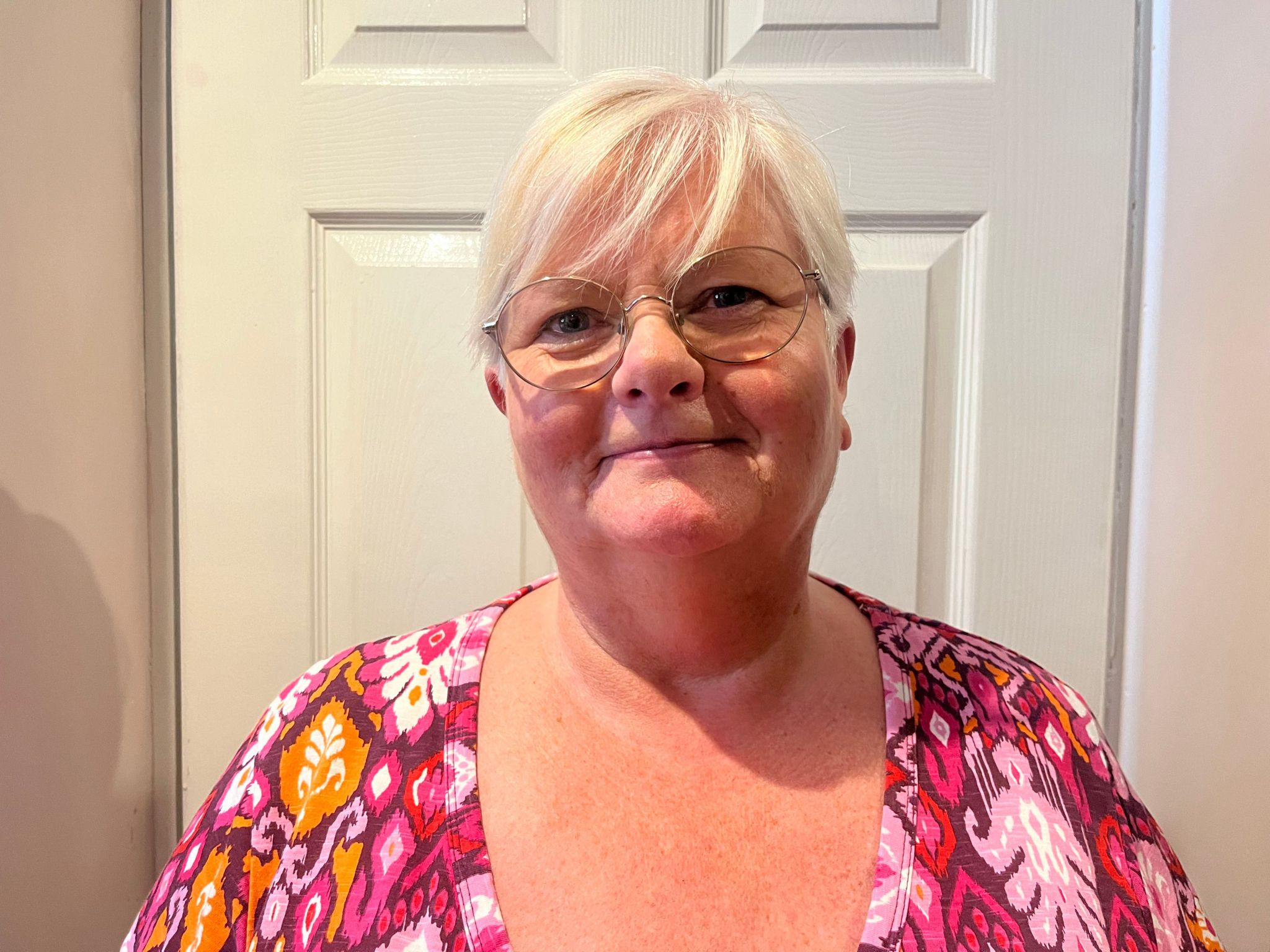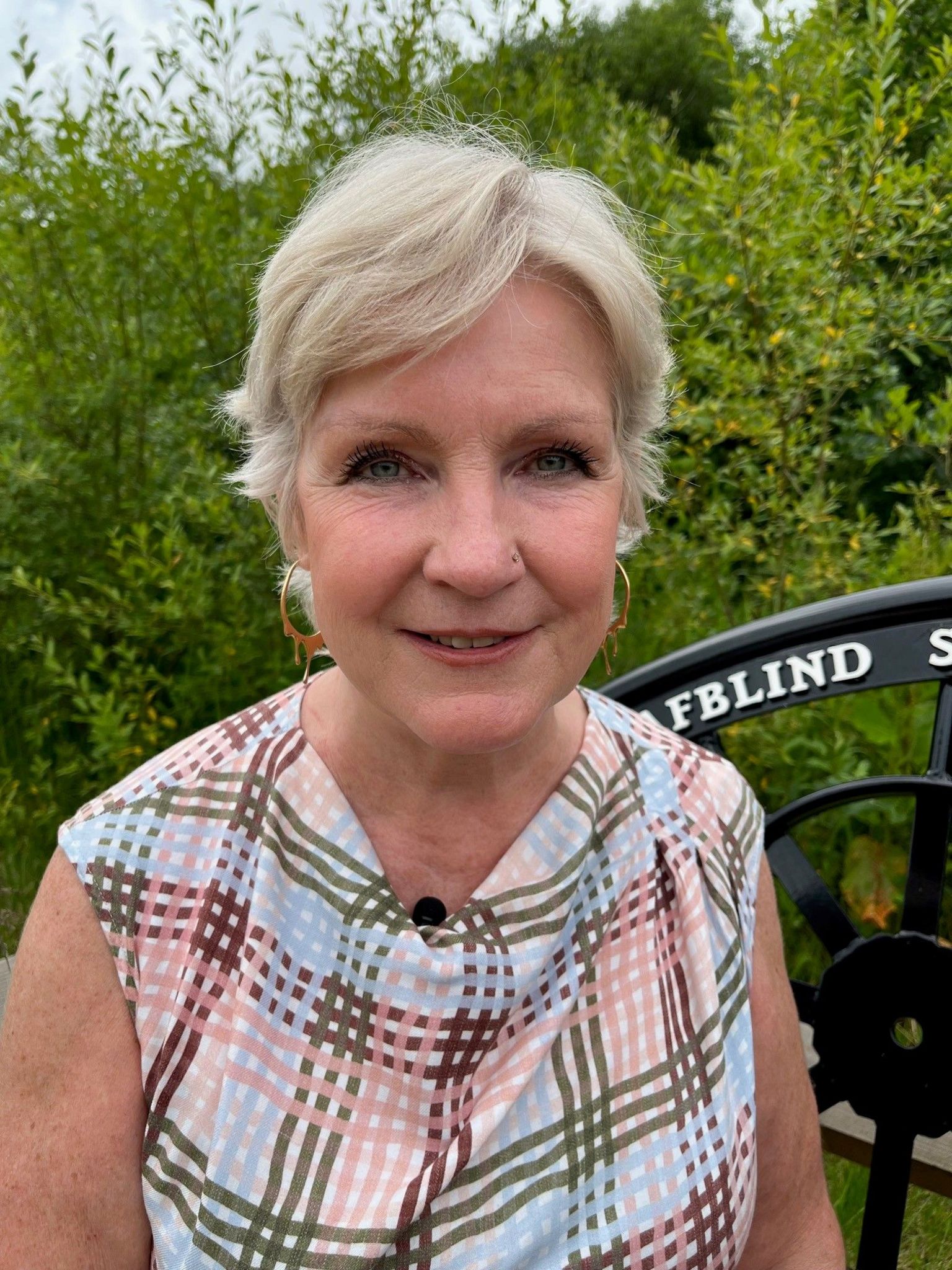
Andrew Pettigrew is one of more than 30,000 Scots who are deafblind
Andrew Pettigrew is 22 years old and completely blind and deaf.
He relies on a cochlear implant to perceive some limited sounds and despite the challenges of living with dual sensory loss, he has successfully graduated with a degree in English and creative writing from the University of Strathclyde.
He is now embarking on his dream of becoming a writer.
Andrew's success has come despite being deafblind - a condition that has never been recognised by the Scottish government.
The charity Deafblind Scotland estimates that 34,000 people in Scotland are deafblind - a condition where both vision and hearing are so impaired that one cannot compensate for the other.
It can lead to serious communication problems and in extreme cases, complete isolation.

Josephine Owen says her son suffered isolation from his friends as a youngster
Instead of getting the support they need for the dual condition, those affected are treated separately for sight loss and hearing loss, with many of their needs not met as a result.
The charity has to estimate the numbers affected because there is no data on the condition which does not officially exist here.
Andrew knows what it is like to experience isolation through deafblindness.
His mother, Josephine Owen told BBC Scotland News: "It happened at a young age while he was in primary school.
"Before that, he was a boy with lots of friends who participated in many activities. Suddenly, these kids didn't know how to deal with it and kept their distance."
Josephine taught herself the deafblind manual, which is a series of words and letters spelled on a person’s hand.
She emphasised the need for early intervention, saying her son was “always clever enough” to go to university but wouldn’t have been able to do so if there had been a lack of support early in his education.
Andrew wants to highlight the urgent need for Scotland to recognise deafblindness as a distinct disability.
"I believe having a clear definition is the first step towards a more inclusive Scotland," he said.
"Policies that support us must consider the unique challenges we face due to both sight and hearing loss."

Isabella Goldie from Deafblind Scotland hopes changes can be made soon
Norway has led on recognising deafblindness since 1980. The Nordic definition is endorsed by the World Health Organisation (WHO) and is accepted by professionals who work in the field.
England and Wales adopted a definition for deafblindness in 1995, producing guidelines on care in 2014.
But no formal declaration or definition has been made in Scotland despite some campaigns stretching back to just after the Scottish Parliament was re-established in Edinburgh in 1999.
“People aren't identified early enough and there are no specialist services,” says Isabella Goldie, Deafblind Scotland's chief executive.
“One of our members has said it in a nutshell, when she talks about waiting in two different queues; a queue to get support for her hearing loss and a queue to get support for her sight loss, but no understanding of how the two affect each other.”
In February Deafblind Scotland and the Scottish Parliament’s cross-party group on deafness started to gather support for Scotland to adopt a formal definition of deafblindness.
Ms Goldie is hopeful of a change in the near future.
"We've had significant support from MSPs and government officials. The evidence shows that countries with a clear definition of deaf blindness offer better services," she said.
'Better way into the future'
Gøran Forsgren, a deafblindness expert at the Nordic Welfare Centre, said: “If you are going to provide proper services for a population, you need to know who you are talking about.
“With early intervention you have a better way into the future.
"Better outcomes are guaranteed the earlier you do start and give access to language,” he added.
A Scottish government spokesperson said: "We recognise the work of the Scottish Parliament's cross-party group on deafness and Deafblind Scotland, along with other members and stakeholders, on a definition of deafblindness. We appreciate the strength of feeling regarding the definition and we will continue to engage on this important issue."
But for Andrew and thousands like him, this engagement can't come soon enough.
As he puts it: "My life is more difficult because of the combination of these disabilities. Policies need to reflect this, rather than treating sight and hearing loss as separate issues."
From BBC
